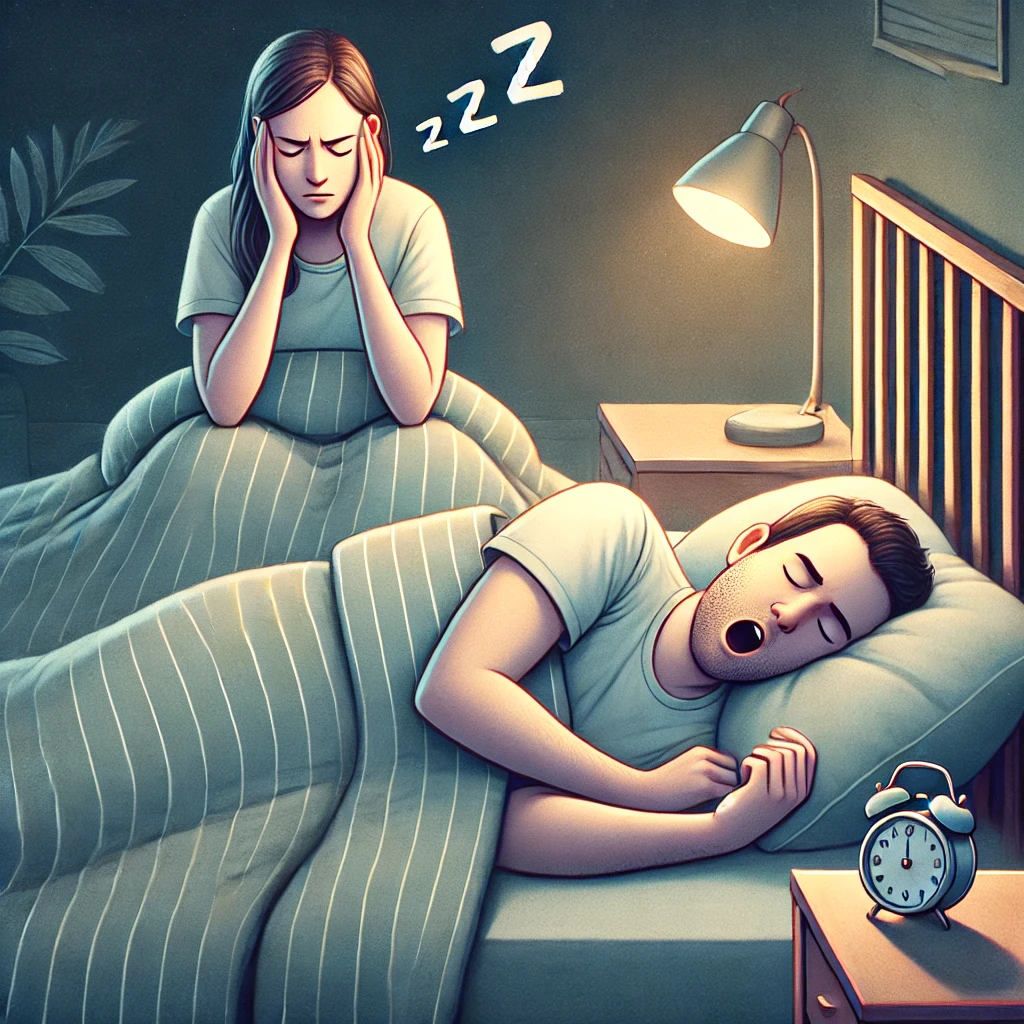Snoring is a common issue that affects millions of people worldwide. While often dismissed as a minor annoyance, snoring can disrupt sleep patterns, strain relationships, and even signal underlying health issues like sleep apnea. Fortunately, a combination of routines and innovative devices can significantly reduce or eliminate snoring. Here’s an overview of what can help.
Understanding Snoring
Snoring occurs when airflow through the nose and throat is partially obstructed during sleep, causing the tissues in the airway to vibrate. Common causes include:
- Nasal Congestion: Allergies or colds can narrow nasal passages.
- Sleep Position: Sleeping on the back can cause the tongue to fall backward and block the throat.
- Lifestyle Factors: Alcohol consumption, smoking, and being overweight can increase the likelihood of snoring.
- Anatomical Issues: Enlarged tonsils, a deviated septum, or excess soft tissue can exacerbate the problem.
Routines to Reduce Snoring
- Adopt Side-Sleeping
Sleeping on your side instead of your back can prevent the tongue from obstructing your airway. If you struggle to maintain this position, specialized pillows or wearable devices can help. - Maintain a Healthy Weight
Excess weight, especially around the neck, can put pressure on the airway, increasing the likelihood of snoring. Regular exercise and a balanced diet can make a significant difference. - Establish a Sleep Schedule
Going to bed and waking up at the same time every day can improve sleep quality and reduce snoring caused by inconsistent sleep patterns. - Avoid Alcohol and Sedatives
Alcohol and sedatives relax the throat muscles, making snoring more likely. Avoid consuming these substances, particularly before bedtime. - Treat Nasal Congestion
Use saline sprays, steam inhalation, or nasal strips to open up nasal passages if congestion is contributing to snoring. - Stay Hydrated
Dehydration can cause mucus to thicken in the nose and throat, leading to snoring. Drink plenty of water throughout the day.
Devices to Combat Snoring
- Nasal Strips and Dilators
Nasal strips are adhesive strips worn across the nose to open nasal passages. Nasal dilators are inserted into the nostrils to achieve the same effect. - Anti-Snoring Mouthpieces
Also known as mandibular advancement devices (MADs), these reposition the lower jaw and tongue to keep the airway open. They’re often used for mild to moderate snoring. - CPAP Machines
Continuous Positive Airway Pressure (CPAP) devices are primarily used for sleep apnea. They deliver a steady flow of air through a mask, preventing airway collapse.
- Anti-Snoring Pillows
These pillows are designed to align the head and neck, improving airway flow. Some models include sensors that detect snoring and encourage the sleeper to change positions. - Smart Snoring Devices
Wearable or bedside devices can monitor snoring and use vibrations or sounds to prompt the sleeper to adjust their position. Advanced models offer detailed sleep tracking and feedback. - Tongue Retaining Devices (TRDs)
These devices hold the tongue in a forward position to prevent it from blocking the airway, making them an alternative to MADs.
When to Seek Medical Advice
While lifestyle changes and over-the-counter devices work for many, persistent or severe snoring may require medical attention. It can be a symptom of obstructive sleep apnea (OSA), a serious condition linked to cardiovascular problems, daytime fatigue, and more. Consult a healthcare professional if:
- Snoring is loud and occurs almost every night.
- There are pauses in breathing during sleep.
- Daytime fatigue, headaches, or difficulty concentrating are frequent.
Conclusion
Snoring doesn’t have to be a permanent disruptor of restful nights. By adopting simple routines and exploring the wide array of anti-snoring devices available, you can greatly improve sleep quality for yourself and your partner. For more severe cases, consulting a medical professional can provide tailored solutions and ensure your snoring isn’t a sign of something more serious. Sweet dreams await!
